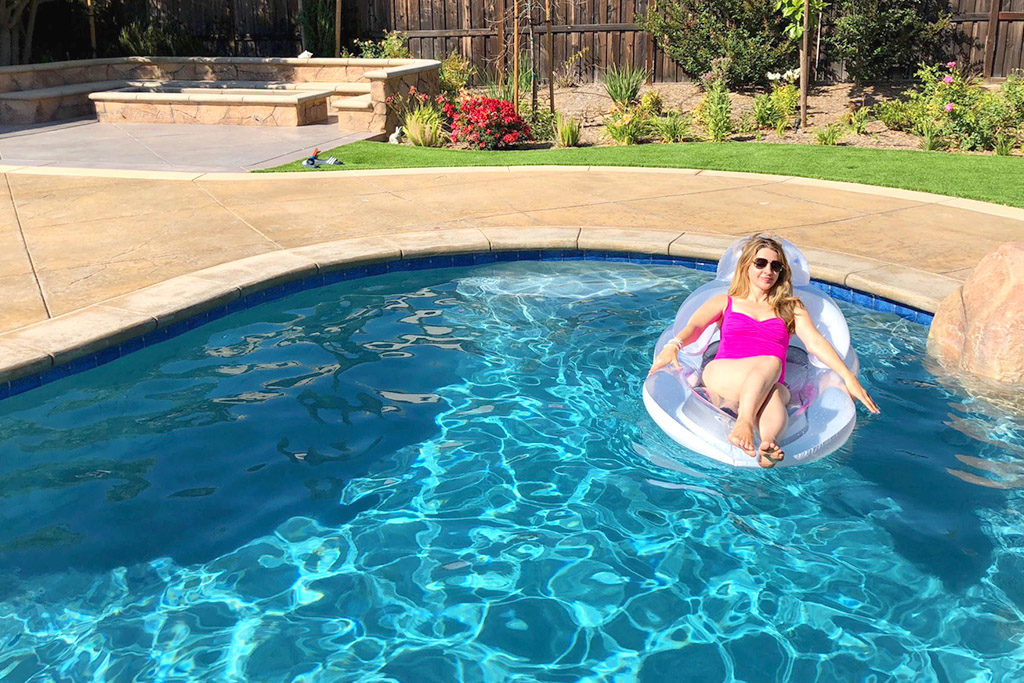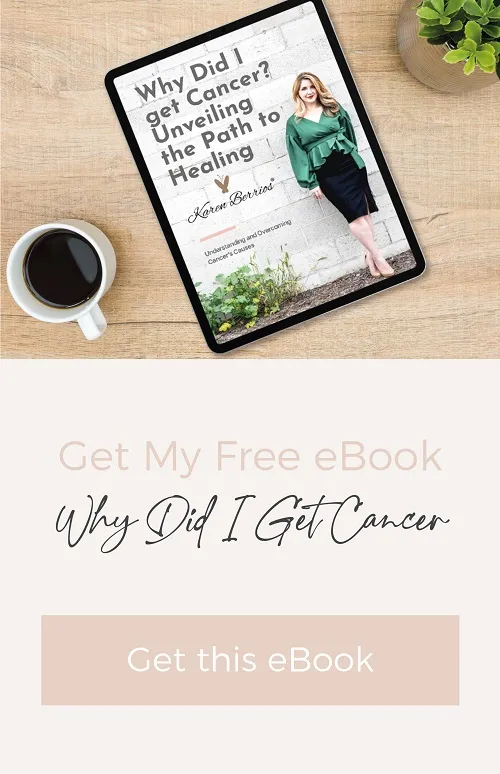

Can Sunscreen Cause Cancer?
Can Sunscreen Cause Cancer? Here we are, right in the midst of summer. Right now, it’s still romantic to think about—long days, short and sultry nights, and visions of sun, sand, and surf dance in our heads. You may be planning on spending a lot more time by the pool or at the beach. Anything to be outdoors, really. And you might be likely to reach for that SPF 30+ sunscreen to protect your skin. After all, we’ve all been told since we were young that we need to always wear sunscreen to protect our skin from the sun’s harmful UV rays. I mean, most of us are willing to take simple measures to prevent cancer, right?
Skin cancer has been on the rise for the past three decades. In fact, skin cancer diagnoses in the past three decades has risen higher than the rest of all other cancers combined. That seems like even more of a reason to slather on or spray on more SPF than ever before. But before you do, consider this: just as the rates of skin cancer have increased dramatically over the past 30 years, so has the use of sunscreen. It begs the question: does sunscreen actually prevent skin cancer? Or can it actually CAUSE cancer?
We know the sun’s rays are comprised of ultra-violet radiation. We also know that radiation causes cancer. With that being said, it makes sense that providing a barrier between the sun’s UV rays and our skin would help prevent cancer. But if we look at the chemicals that are contained in regular drugstore brands of sunscreen, a lot of the chemicals inside of them have me concerned about my own health.
Think about it this way: many medications are prescribed to be administered through the skin. Hormones, in particular, offer a transdermal method of delivering medication to your body. In fact, testosterone is often given as a cream for people with certain medical conditions. The cream is spread onto areas of the skin and absorbed into the body. Additionally, a lot of hormonal female birth control medicines are prescribed as a patch. Medicine is delivered to the bloodstream through our body’s largest organ—the skin.
A 2009 study looks to find out just how much of what we put into our skin is absorbed. The results are a little bit alarming in that it seems difficult to measure. The process involved a database of 101 known chemicals and 36 different skin samples, and it was unable to determine with any certainty how much of what is applied topically is absorbed. Let’s take it a step further. When it comes to sunscreen, another study determined that it is unknown just how much of the chemicals are absorbed and what those effects are.
Just What Is In Sunscreen?
Sunscreen’s active ingredients are known as “chemical filters”. These filters are designed to provide a barrier between ultra violet radiation and our skin. It sounds like a great idea, in theory. We can put a product on our skin before we go outside, and not have to worry about damaging our skin. These chemicals are widespread and found in a wide range of sunscreens.
An August 2016 study sets out to determine just how harmful some of the most common sunscreen ingredients are. The results are sobering and really forced me to reconsider what exactly I apply to my skin. The chemical filters are designed to either absorb or reflect the sun’s harmful UV rays, and have been produced in large quantities and spread widely. The residues of these chemicals have been found in soil samples, water, fish, human milk, and placenta. Many of these chemical filters are proven endocrine disruptors. Some impact the amount of estrogen, disrupt testosterone production, and have an impact on the pituitary as well.
One of the most common chemicals found in sunscreen is known as Oxybenzone (also known as BP-3). This chemical filter is one of the most common active ingredients in regular sunscreens. However, a study published just a few months ago in February of 2018 has raised doubts about the safety of the chemical. In fact, Oxybenzone is emerging as both an environmental and a human contaminant. It is so harmful, that on May 2, 2018, Hawaii actually banned sunscreens containing the chemical as it has been shown to be harmful to the coral reefs. And yet, the chemical continues to be among the most commonly-found in regular drugstore sunscreens.
Just How Effective Are Sunscreens At Preventing Skin Cancer?
This actually depends. The results of a 2012 study were inconclusive regarding the effectiveness of preventing melanoma, the most dangerous form of skin cancer. The same study also showed another alarming conclusion. One particular UV filter commonly found in sunscreen, known as BP-3, has been found in 96% of urine samples in the United States. That means we are absorbing it and metabolizing it in order for it to be found in urine samples.
Another more recent study set out to determine if daily application of sunscreen prevented Basal Cell Carcinoma or Squamous Cell Carcinoma. Surprisingly enough, the results were inconclusive and found no difference in rates of skin cancers in those who applied sunscreen every day and those who only occasionally applied sunscreen. So what does that tell us? Most likely it says that sunscreens do very little to actually prevent any type of skin cancer.
Do The Chemicals In Sunscreen Cause Cancer?
The chemicals in sunscreen have been linked to all kinds of health problems. Additionally, the chemicals in sunscreens are also linked to certain types of cancer. A 2015 review of literature related to studies involving melanoma has some very frightening results. 21 studies were factored into the results. Of those 21 studies, 8 directly linked the use of sunscreen to melanoma. Only 4 studies actually cited sunscreens to preventing melanoma. Twice as many studies show sunscreen can actually CAUSE melanoma!
What To Do Instead
So we know that radiation causes cancer. It is one of the reasons why I choose not to undergo traditional treatment for thyroid cancer. Radiation is dangerous to our bodies. We cannot get an x-ray without wearing a lead vest to protect our reproductive organs. Ultra violet radiation is not without potential risk to our bodies. And yet many of the methods we have for protecting our skin from that radiation is a chemical barrier that also causes cancer. It seems like a catch-22. Do we really need to try to choose the lesser of two evils and hope whatever we do doesn’t give us cancer?
Actually, we don’t. There are a lot of ways you can still enjoy the outdoors. You can still live an active lifestyle and enjoy that sun, sand, and surf without having to decide which poison will be less harmful. Covering up is always a viable option. When out in the sun, wearing a wide-brimmed hat that will provide a physical (as opposed to a chemical) barrier to your skin will protect your face and neck from the sun. Wearing loose-fitting, long-sleeved clothing will also help provide a physical barrier to the harmful rays of the sun.
For those times when completely covering up isn’t reasonable, there are other ways to protect yourself. Mineral sunscreens provide a natural and oftentimes healthy barrier between your skin and the sun. Zinc-oxide and titanium-dioxide are both minerals that can provide excellent sun-protection. These minerals are not shown to be absorbed through the skin, according to an August of 2015 study. That makes these types of sunscreens not only natural, but safe.
Final Thoughts
With summer here, a lot of us are spending more time outside. We’re still in the early stages of romance with summer. Our children are out of school for the summer. We are planning our parties and barbecues and our long days by the pool or the beach. And a lot of us are reaching for that tube of sunscreen to “protect” our skin. While I am not a chemist or a dermatologist, I can say with utmost certainty that the chemicals that are found in regular sunscreen are bothersome for me. At best, they are endocrine disruptors, meaning that they affect the way our bodies produce and use hormones. At worst, they are known cancer-causing agents.
It is my purpose to do everything I can to honor the body I was blessed with. In doing so, that sometimes means going with my gut and opting out of traditionally accepted treatments. In my journey, I want to understand and acknowledge my basic emotional, physical, and spiritual needs. That means avoiding things that are known to be harmful. Just like I would never knowingly or willingly put my body in front of a fast-moving train, I would never knowingly or willingly introduce chemicals to my body that could cause cancer. That means sunscreen, to me, is just not worth the risk it poses. Instead, opting for natural mineral sunscreens or providing an actual physical barrier between myself and the sun’s rays is a safe and natural way to still be able to enjoy the Great Outdoors. My personal favorites are the Eminence sun defense powder for my daily use and Raw Elements for outdoors. How about you? Which one is your favorite?

hey there
I'm Karen!
I have found my cancer journey to be a positive and profound transformational experience. I’m inspired to share my healing journey here, and trust you’ll find hope, encouragement and purpose as you discover the healing power that lies within you.
Join
The Mailing List!
By signing up for my newsletter, you agree with our Privacy Policy and Terms & Conditions.


